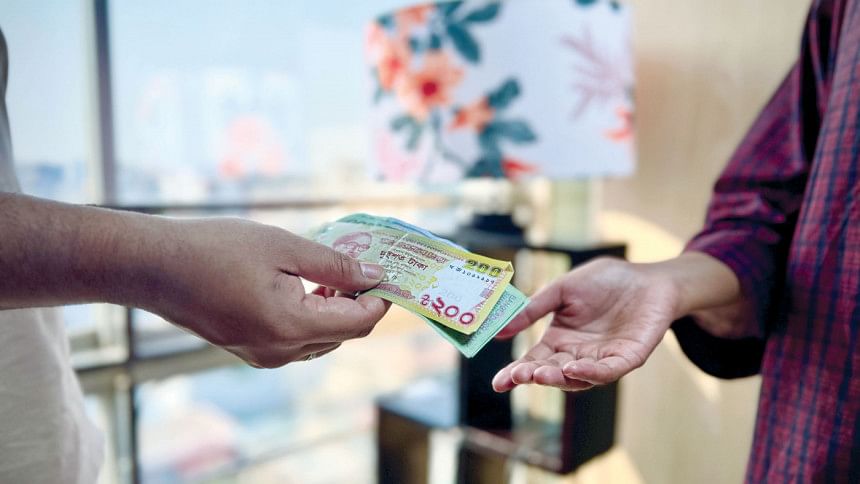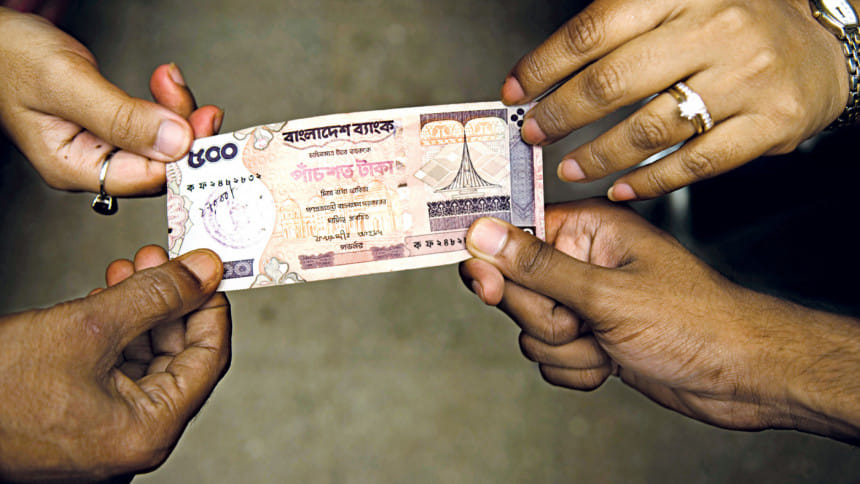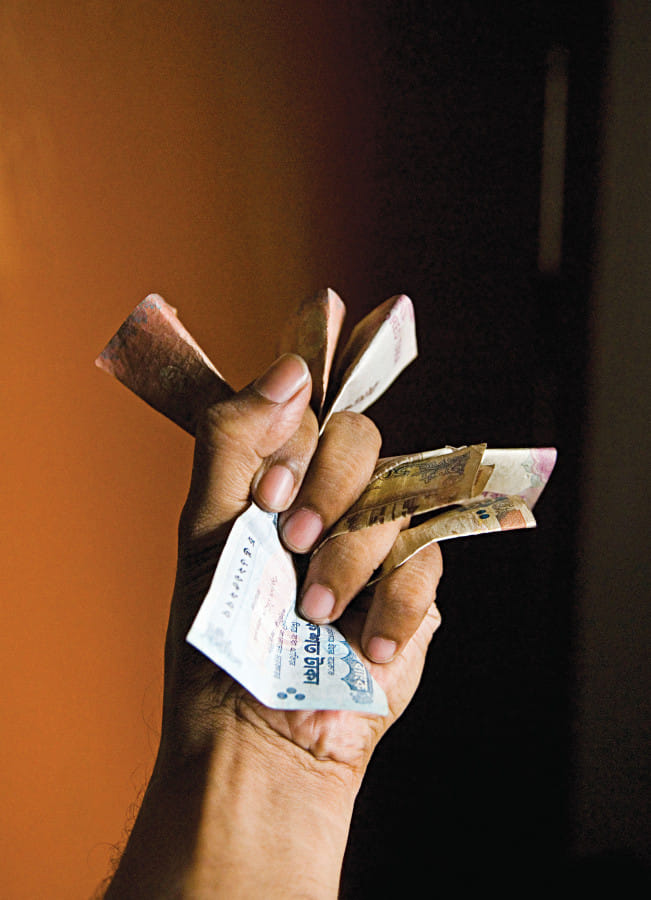The great salami shift: Eid celebrations through millennial eyes

Eid in Dhaka unfolds a tale that every millennial can narrate with a mix of nostalgia and a slight grimace. It's that time of year when our roles shift dramatically from the eager hands once extended for Eid salamis to the ones reluctantly opening our physical or digital wallets.
Gone are the days of our childhood when Eid meant a hefty bonus to our savings, collected eagerly from every visiting relative. Now, as reluctant adults, we find ourselves on the other side of this tradition, navigating the complexities of generosity and saying, "There goes my Eid bonus" under our breath.
Before we delve further, let me take you down memory lane, way before we were hit with the dose of puberty, to a time when Eid was synonymous with joy, festivity, and the sweet victory of collecting salamis. Fast forward to the present, and here we are, scrolling through our contact list to send digital salamis, the excitement replaced by a sigh as we see our balance dip.

Eid in Dhaka has always been more than just the salamis; it's about the gatherings, the feasts, and the shared laughter. However, with adulthood comes the realisation that our actions, like giving salamis, stitch the fabric of these traditions tighter, keeping the spirit of Eid alive for the younger ones. It's a transformation that many of us did not see coming, but have embraced with bittersweet acceptance.
Many of you reading this might understand the bitter part, but a probing question may come to your mind; which part of it can be sweet? There was this one Eid, when my toddler nephew, barely five, came up to me with the biggest, most hopeful eyes, holding five Tk 100 notes, and asked, "Do you have Eid Salami for me?" Giving into his cuteness and chubby cheeks, I handed over a note of Tk 500 as a salami.
His spirit went down a bit as the toddler saw the note and went on to clarify his dismay, "Boro papa gave me five notes. Why did you give only one?"
The earnestness in his question struck a chord while I chuckled at the predicament. The only solution to lighting his eyes up was to hand him the five notes. Such cute little encounters serve as a reminder of the pure joy these traditions bring. It was a small moment, but a significant realisation of the joy of giving, something I had taken for granted in my pursuit of collecting salamis as a child.

Another memorable instance was last Eid, when, thanks to digital transactions, I managed to send salamis to my nieces and nephews scattered across the country. The flurry of thank-you calls and messages I received was overwhelming. Then, out of nowhere, I received an amount (adult-appropriate amount) in my digital wallet with a tag of salami from my mother-in-law which made my inner child giggle with happiness. Such pleasant and heart-warming interactions made me realise that these digital salamis, devoid of physical interaction, could still bring us closer, knitting our family tighter across distances.
Eid in Dhaka, devoid of its usual hustle and immersed in a sense of communal joy, offers a unique perspective on the essence of this festival. It's a time when the city breathes, unfettered by its usual chaos, and we, its inhabitants, reconnect with traditions that have evolved, yet remained the same at their core.
As millennials navigating the transition from receivers to givers, we are part of a narrative that bridges the old with the new. Although the means of communication amongst us have evolved in the modern day, the spirit of Eid has not. It's about the happiness, the community, and the upholding of customs that have served as the foundation of our celebrations.
So, here's to embracing the great salami shift, a testament not just to our enduring spirit but to the evolution of our traditions in the digital age. May our stories of Eid salamis, whether given or received, digital or physical, continue to add layers to the rich tapestry of our communal celebrations. And in this journey of giving, let's cherish the smiles we spread, the bonds we strengthen, and the traditions we keep alive, one digital transaction at a time.

 For all latest news, follow The Daily Star's Google News channel.
For all latest news, follow The Daily Star's Google News channel. 








Comments